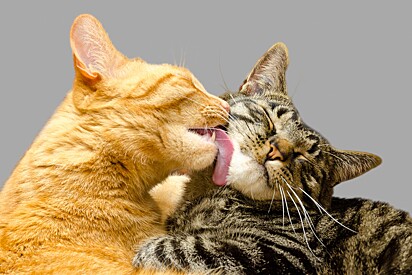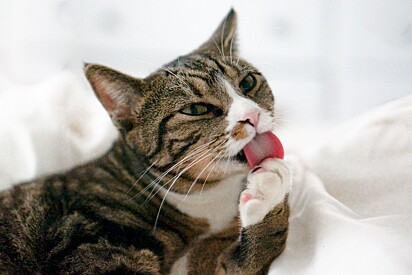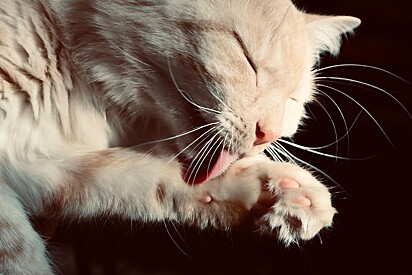Biologist Debunks the Myth: Cats Are Not the Villains of Sporotrichosis
Learn the true cause of sporotrichosis and how to protect your health and that of cats.
By Gabriele Tancredo Stella in Cats
You’ve probably heard about the rise in sporotrichosis cases, a contagious disease that can affect humans, dogs, and cats.
However, it’s important to clarify that cats aren’t responsible for this condition—they are, in fact, the victims.
Biologist Ricardo Martins Santos, a UNITAU graduate with a master’s in immunology from USP, spoke to Amo Meu Pet (our Brazilian website about pet news) to explain the reasons behind it.
What is Sporotrichosis?
Sporotrichosis, also known as 'gardener's disease,' is a condition that affects humans as well as various species of domestic and wild animals.
It’s a mycosis caused by a fungus found in soil, straw, plants, rose thorns, and decomposing wood.
“Sporothrix schenckii, the fungus that causes sporotrichosis, is dimorphic—meaning it has two forms: one unicellular and the other multicellular.In both forms, it can cause disease. This fungus is spread all over the world, but it is most common in tropical and subtropical regions. The fungus thrives in warm temperatures and is present in the environment,” the biologist summarizes.
How is Sporotrichosis Transmitted?
Ricardo emphasizes that cats aren’t the villains when it comes to disease transmission. After all, the fungus exists in the environment and can be transmitted directly.
“Cats are not the villains—every animal is susceptible to this fungus. Sporotrichosis is contagious both from humans to animals and from animals to humans. Contagion is direct—that is, it occurs when a person comes into contact with an infected skin wound,” explains Ricardo.
According to theBrazilian Society of Dermatology, cats may be more likely to get infected due to their habit of grooming themselves frequently and licking other animals or humans.
“These animals have the habit of rubbing and licking each other, and this behavior contributes to the spread of sporotrichosis - not only among them, but also between cats and humans,” points out an article by the Brazilian Society of Dermatology.
However, the biologist emphasizes that cats are more associated with the disease due to how they develop symptoms.
“Cats are more sensitive, as the lesions appear on their faces and attract more attention, but humans, horses and dogs can also suffer from sporotrichosis,” Ricardo explains.
Symptoms of Sporotrichosis
Sporotrichosis presents with different symptoms, depending on the species affected. In felines, the most common signs are: ulcerated lesions on the skin, usually with pus, which do not heal and can progress quickly.
“In cats, the lesions tend to appear on the face—especially on the nose. That’s why they are strongly associated with sporotrichosis.

In humans, the infection is usually limited to the skin, but in severe cases, it can spread through the bloodstream, reaching bones and internal organs.
“The symptoms are related to lesions on the ski and lymphatic regions. It rarely becomes generalized; it is normally a lesion that occurs on the skin and is limited to that area. In some cases, in immunocompromised patients, the lesions can appear in several regions of the body,” explains Ricardo.
Treatment and Prevention
It is important to note that sporotrichosis is not a serious disease and is curable. Treatment should begin as soon as possible. Deaths in humans are rare and are more common in people with compromised immunity. Inadequate treatment can also lead to the death of animals.
Therefore, it is crucial to seek medical or veterinary help quickly. To prevent the spread of sporotrichosis, it is essential to treat those who are infected, avoid contact with their lesions and adopt hygiene measures, such as washing hands after interacting with suspected infected individuals.
"Skin hygiene, proper hand washing and avoiding direct contact with animal wounds are important measures. Animals do not have the same hygiene routine as humans, making them more susceptible to contagion," concludes Ricardo.
Conclusion
In short, cats are not the villains of sporotrichosis, but rather the victims of this disease. Raising awareness about its causes, transmission and prevention is essential to protect the health of felines and their owners.
If you notice any suspicious symptoms in your pet or yourself, do not hesitate to seek medical or veterinary help.







